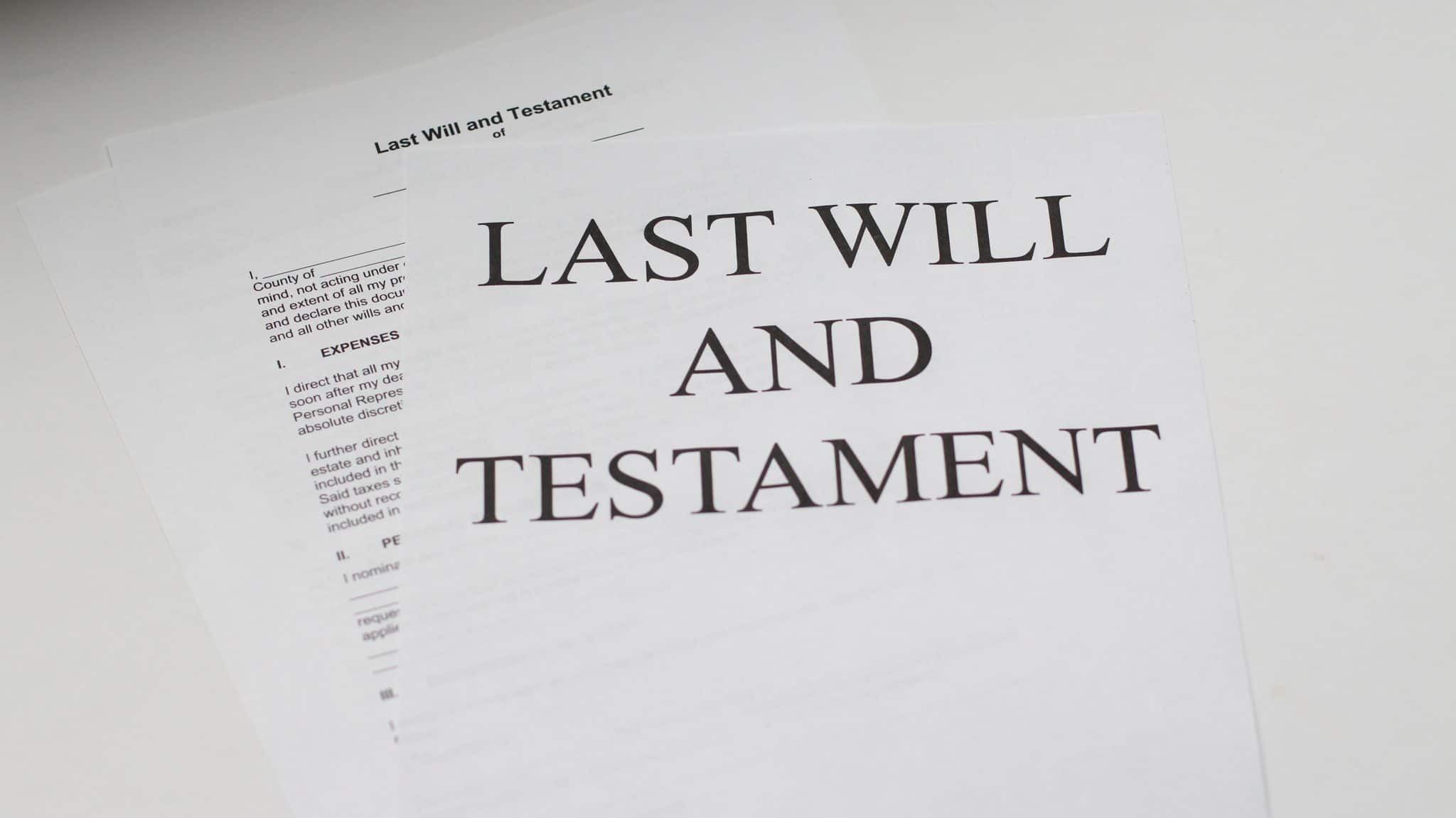This piece was co-written by Ines Kallweit (Principal Solicitor, KHQ Lawyers) and Susan Aufgang (Victorian Bar). It first appeared in the December edition of the Wills & Probate Bulletin published by the Leo Cussen Centre for Law.
Introduction
Australia is a multicultural country, where almost one in two of its citizens was either born overseas or has a parent that was born overseas.[1] The likelihood of an Australian having assets in a jurisdiction outside Australia is strong, which can result in a conflict of laws when assets are transferred after death. Being a dual national or just having assets in more than one jurisdiction raises issues when it comes to estate planning.
Inheritance laws greatly differ from jurisdiction to jurisdiction. If the different laws are not carefully considered when a Will is prepared, it can lead to conflict and increased costs on the death of a testator. For example, some countries have inheritance tax while others do not, some countries require the signing of a Will to be witnessed while in other countries a handwritten Will signed by the testator’s own hand only satisfies the validity requirements. In some jurisdictions, for example in many European countries, forced heirship rules are part of the civil code, while in other countries there is no restriction to whom testators can leave their estates. A comprehensive estate plan must consider how different laws impact on a person’s Will.
When there is a dispute as to which country’s law should apply, the courts look to private international law and in particular a body of law known as the ”conflict of laws” to determine which court of a country or state has jurisdiction over things or persons. The “conflict of laws” does not make a distinction between real and personal property per se, rather it distinguishes movable from immovable property. Whether a thing is movable or immovable will be decided by the law of the situs i.e. the place where the property is situated[2]:
- movables include chattels not attached to land and choses in action, for example bank accounts and mortgage debts,
- immovables are land and all interest in land of whatever nature, for example title deeds and fixtures.
The general rule is that irrespective of domicile, the law of the lex situs will determine the succession of the property within the lex situs in relation to immovables. However, in regard to movables, the law of the deceased’s domicile at the date of death will apply, regardless of nationality.
Haque
These distinctions were critical in the case of Haque v Haque (No 2) (1965) 114 CLR 98 (“Haque”), which involved a dispute between the deceased’s brother, who had been left the entire estate in the deceased’s Will executed in Western Australia, and his wife and ex-wife and their children, who were entitled to a share under Indian Muslim law. The deceased died while domiciled in India but left property in Western Australia including the unpaid balance of purchase money due to the deceased upon the sale of land and a share of a solvent partnership which included land amongst its assets. The Court was asked to determine whether the Western Australian property was “movable” or “immovable”. If it were found to be “movable”, the wives and children would be entitled to a share of the estate under Indian Muslim law. If it were found to be “immovable” then the lex situs would apply and the brother would inherit all the property under Western Australian law.
Using an analogy of the mortgagee debt, which is movable property at law, the High Court found that the unpaid balance of purchase moneys was movable property as was the share in the solvent partnership, even though some of the property involved land. The wives and children could therefore take a share in this property.
Re Tang
In the recent decision of Re Tang [2017] VSCA 171; (2017) 52 VR 786 (“Re Tang”), the Court of Appeal in the Supreme Court of Victoria also dealt with an estate involving movable assets and a testator who was domiciled overseas. However, in contrast to Haque, in Re Tang the central issue was whether a testamentary disposition validly executed overseas and disposing of movable assets in Victoria could be admitted to Probate in Victoria.
In this case, the deceased, Tang Ming Zheng, was an Australian citizen domiciled in The Peoples Republic of China (“China”). He had suffered from heart problems for a number of years which led to him being hospitalized in early November 2014 in Shanghai. His mother, on hearing of his illness, travelled to Shanghai to be at his bedside. On 14 November 2014 she returned from some shopping and found a Note that Mr Tang had written, signed and dated. It was not witnessed and no executor was named. Translated into English, the Note read as follows [3]:
Mama:
In Australia, I only have two bank accounts with Westpac. One account is the one you regularly deposit $50 every month, and the other one is a three-year term deposit account. Both account bankbooks are at your place. Remember, the money in both accounts is for your personal use only. Take care!
Tang Ming Zheng
Date: 14/11/2014
Pursuant to Article 17 of the Chinese Law of Succession, the Note satisfied one of the options of a valid Will being: “A testator-written will is made in the testator’s own handwriting and signed by him, specifying the date of its making.” [40]
Mr Tang died on 26 November 2014, 12 days after writing the Note. At the date of his death, the deceased had assets in Australia which consisted of two bank accounts held with Westpac and a motor vehicle. His remaining assets were in China. The motor vehicle and the Chinese assets needed to be dealt with according to the laws of intestacy. One question to be determined was whether the laws to be followed were those of China or those of Victoria.
The deceased was survived by his father, his mother and his wife. His parents were divorced with his father living in China and his mother living in Victoria. His wife, from whom he was separated, also lived in China and had a son. However it was not clear if the deceased was the father of the boy.
The deceased’s mother applied for a grant of Letters of Administration with the Will Annexed, on the basis that the Note was her son’s last Will. With her application, she also filed two documents entitled ”Consent of Beneficiary” signed by the deceased’s father and deceased’s wife. They both consented to the mother’s application and the Court of Appeal determined that if the boy was the deceased’s son, then the wife had given sufficient consent on his behalf as well [97].
Article 10 of the Chinese Law of Succession deals with the distribution of an estate on intestacy. Unlike in Victoria, it gives equal rights to the spouse, children and parents of the deceased [38].
Although the deceased was domiciled in China, the Court of Appeal found that as the deceased’s mother, who was the sole beneficiary, lived in Victoria, the assets gifted by the Note were located in Victoria and the deceased’s mother was also a major beneficiary in the intestate estate, Victoria was prima facie an appropriate forum for determining, in accordance with section 17 of the Wills Act 1997 (“the Wills Act”), the validity of the Note as a Will under the Chinese Law of Succession [72].
It is generally necessary to obtain expert evidence for the strict proof of a foreign law in Victoria [65]. However, in this case, the primary judge had done her own research and that research yielded a text which coincided exactly with the text that the applicant relied on [65]. The latter text, being the website Asianlii, could therefore be considered “a reliable source of information”. Section 174(1)(b) of the Evidence Act 2008 (“the Evidence Act”) stated that: “Evidence of a statute, proclamation, treaty or act of state of a foreign country may be adduced in a proceeding by producing … a book or other publication, containing the statute, proclamation, treaty or act of state, that appears to the court to be a reliable source of information …” [53]. The Court of Appeal found that it was indeed a reliable source of information.
Section 17(1) of the Wills Act states: “A will is to be taken to be properly executed if its execution conforms to the internal law in force in the place – (a) where it was executed; or (b) which was the testator’s domicile or habitual residence, either at the time the will was executed, or at the testator’s death; …” [35].
Using Article 17 of the Chinese Law of Succession and section 174 of the Evidence Act and with section 17 of the Wills Act enlivened, the Court of Appeal found that the Note could be admitted to probate and consequently it granted the applicant Letters of Administration with the Will Annexed [96], [98], with the balance of the estate to be distributed in accordance with the intestacy provisions of Article 10 of the Chinese Law of Succession [98].
Implications of Re Tang
In Re Tang, the Court of Appeal was able to find that the deceased’s handwritten Note was a valid Will pursuant to section 17 of the Wills Act, notwithstanding the fact that it did not conform with the validity requirements of a Will under Victorian law. The case is a good illustration of what to consider when dealing with a foreign testamentary disposition in Victoria. It also demonstrates the importance of seeking advice from legal practitioners experienced in each of the relevant jurisdictions when preparing a Will in order to avoid the time, cost and stress of extensive litigation.
With dual nationality now common place in Australia, as well as testators having assets in more than one jurisdiction, practitioners should be aware of the challenges involved in dealing with local and foreign assets or testators who are domiciled overseas when it comes to drafting Wills and administering estates.
[1] http://www.abs.gov.au/ausstats/abs@.nsf/lookup/Media%20Release3.
[2] Re Williams [1945] VLR 213; Haque v Haque (No. 2) (1965) 114 CLR 98.
Ines Kallweit is a Principal in our Wills & Estates team (click on the image below to read her bio). Susan Aufgang was admitted to practice in 2002 and called to the Bar in 2004. Susan enjoys solving legal problems, working in different jurisdictions and areas of practice, both civil and criminal. Susan provides written advices, suggests solutions to legal disputes before filing, settles matters at mediation and appears at first instance and appellate hearings in the Magistrates’ Court, County Court, Supreme Court, Court of Appeal, Federal Circuit Court, Federal Court and VCAT.








